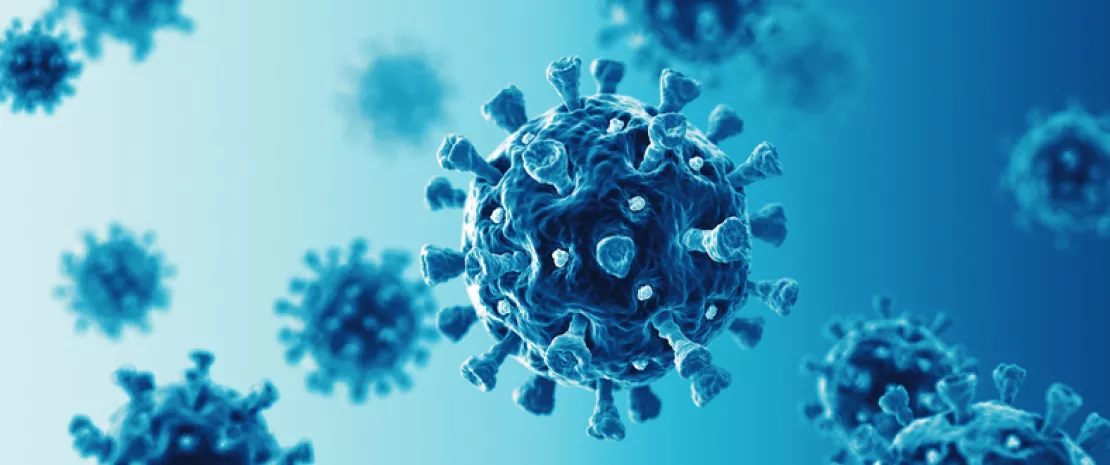How does Covid-19 affect the gut microbiota?
Angiotensin converting enzyme 2 (ACE2) is the key receptor for SARS CoV-2, the virus responsible for the Covid-19 pandemic. Its expression on the luminal surface of the gut has led researchers to investigate its exact role, as well as the impact of Covid-19 on the gut microbiota and gut epithelium.
Lay public section
Find here your dedicated section
Sources
This article is based on scientific information

About this article
While Covid-19 usually produces respiratory symptoms, a significant proportion of patients suffer from gastrointestinal disorders such as diarrhea, vomiting or abdominal pain. In a review of 35 studies involving 6,686 Covid-19 patients, 29 of the studies showed a 4% prevalence of gastrointestinal symptoms and a 19% prevalence of liver function abnormalities. These symptoms were more severe with increased viral load. In addition, approximately 10% of patients had gastrointestinal symptoms only, and no respiratory symptoms.
A deregulation of ACE2 in the gut
To link bowel disorders to Covid-19, the researchers investigated the role of ACE2 (receptor for the SARS CoV-2 (sidenote: The Spike protein, or S protein, is the key that allows SARS-CoV-2 to enter human cells ) ) in gut inflammation. Highly expressed in the gut, its function is to control the absorption of dietary amino acids such as tryptophan, which plays an important role in immunity. Indeed, several preclinical studies suggest that gut ACE2 is an essential regulator of gut inflammation. In an (sidenote: ACE2 knockout mouse An ACE2 knockout mouse is a mouse model in which the ACE2 gene is absent ) mouse model, the absence of the ACE2 gene leads to more (sidenote: A sodium dextran sulphate (DSS)-induced colitis model ) . In another model (animals treated with an (sidenote: Angiotensin receptor blocker (ARB) ) ) with stress-induced inflammation, increased ACE2 expression correlated with reduced inflammation. Therefore, an ACE2 deficiency increases gut’s susceptibility to inflammation.
A lasting gut dysbiosis?
Furthermore, the digestive tract takes longer to excrete SARS-CoV-2 than the respiratory tract. SARS-CoV-2 RNA persists in the stool in over half of patients even after a negative nasopharyngeal swab test and up to 33 days after symptomatic healing of a lung lesion. A study on 15 patients also showed persistence of gut dysbiosis well beyond infection, with a loss of beneficial species in most patients. Exposure to SARS-CoV-2 may therefore be associated with long-lasting harmful effects on the gut microbiota.
According to the authors, by down-regulating gut ACE2, SARS-CoV-2 may modify the gut microbiota and increase systemic inflammation, which may explain the multiple organ failure observed in Covid-19.






